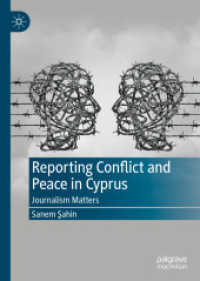Full Description
Chemistry is traditionally thought to have been a masculine subject in secondary schools - one at which boys excelled and girls had limited interest. In this groundbreaking work Marelene and Geoff Rayner-Canham reveal that from the 1820s to the 1930s chemistry teaching flourished in girls' independent schools in Britain. Working in well-equipped labs, generations of inspirational teachers imparted a lasting fascination for the subject in their pupils, many of whom became teachers or professional chemists themselves. For a variety of reasons that the authors investigate, this tradition tailed off before the Second World War, and a proud history was forgotten even in the schools where it had once flourished. The fruit of years of research in the archives of dozens of schools, the authors present a rich and multifaceted account that reveals the hidden history of a landmark achievement in the education of women.
Contents
CONTENTSin girls' education, 1850-1910; 2. The earliest chemistry education for girls; 3. Chemistry and the two role-model girls' schools; 4. Chemistry as a girls' subject; 5. The pioneering women chemistry teachers; 6. Practical chemistry at girls' schools; 7. Chemistry and school science clubs; 8. In their own words: Chemistry poetry and short stories; 9. Chemistry at some Welsh girls' schools; 10. Chemistry at some Scottish girls' schools; 11. What will the chemistry students do?; 12. The 1930s: The end of an era; References; Index






